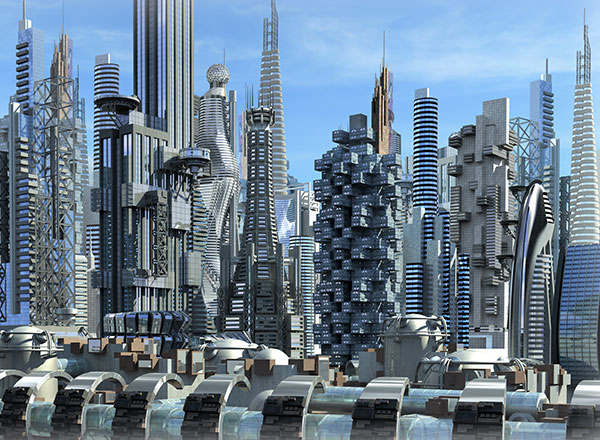Neurotic Production

Somehow I can't avoid Marc Andreessen's It's Time to Build article continually popping up on my feed on a near-weekly basis. I can't blame folks for continually critiquing it, wondering what it means for the next round of technology investment and how technoscience will continue to distort our world into flawed visions of these megalomaniacs.

I don't want to critique this piece though. God knows, enough already have.
I remember when I was a teenager, I worked in a manufacturing shop. I remember the race to burr steel cutter blade holders before the tiny piece of metal became so hot from the friction that it would burn my fingertips. I remember running a 40-year-old lathe, cutting down hundreds of activating rods to the same length. I remember the brief escape from alienation when each piece of the assembly came together, well oiled. That satisfying click as each piece mechanically guided each other to achieve a specific function.
The satisfaction was more ideological than it was auditory. It was about control. Millions of small actions, literally grinding away chips, slowly formed into an object which could seemingly transform our world in a small way. As a child slowly coming of age, who had no tools for understanding my place in it, the anxiety to manage that lack of understanding increased as my time to be thrown out on my own came near.
However, the things I was manufacturing weren't magic wands that I would go on to use to shape the world. They were simply gears in a much larger machine. Their development was subcontracted and fit into a much larger manufacturing process of military weaponry, automotive, energy, and more. I did not choose what to build but I still ascribed this idea of control upon this process because I was the one doing the building.
Now, along with the rest of the social scientists, I watch our world unfold. Burning fields soon to turn to dirt, dry riverbeds soon to be flooded, empty land soon to be developed. The piles of trash imported to Jordan, the poisoned town in North Dakota from a chemical processing plant, there are no shortages of signs as to why this unfolding is happening, but somehow I'm still missing the citations needed to accurately describe it. As a young graduate student, I find this same satisfaction in creating a "new" understanding, as the citations click together and the argument concludes.
The satisfaction was more ideological than it was literary. It was about control. Millions of words slowly developing ideology, empirically imagining a new world, and appealing to collective reason so that we have a blueprint to build a new world.
You don’t just see this smug complacency, this satisfaction with the status quo and the unwillingness to build, in the pandemic, or in healthcare generally. You see it throughout Western life, and specifically throughout American life.
- Marc Andreessen
So we publish our papers, even ones we might call radical that call for a radical revisioning of our world so that we may begin building it. Largely, as with manufacturing, our production operates within an environment that controls the purpose of our productive output. While we still fool ourselves into believing we exert some semblance of control due to our hands shaping whatever material to produce what we do, ultimately we do so for a salary, grant funding, or promotion. An academic has no more control over their research than a lineworker does over their output.
Marc Andreessen could not be more wrong when he describes Americans as not wanting to build. We don't just want to build, we compulsively need it. It doesn't matter what we build. Building and producing is the tiny thread that is holding our reality together. The feeling of production, even of something meaningless or harmful is enough to maintain an illusion of self-control.
Instead of this complacency fueled by laziness described by Andreessen, we have a neurotic productive/consumptive obsession fueled by anxiety. What we lack is our commitment to destroy our existing system. As our ecological system collapses, our economic stability falters, and systems of control revert to discipline, our anxiety will only increase. This obsession will not be cured by the death of our ecosystem. At best we will augment ourselves to continue this obsessive production.
No, only through the destruction of this system that dictates production can we begin to develop control and begin to heal our neurotic obsessions and anxieties. For every academic that produces a new vision of a better world, I would like to ask how they contribute to the destruction of our current world which is a pre-requisite for their vision. The struggle towards destruction is a quality by which you can determine whether one is a revolutionary. If we wish for revolution, we must overcome our anxiety concerning control. We must overcome this fantasy that our production can somehow manifest a new world while maintaining the old.
